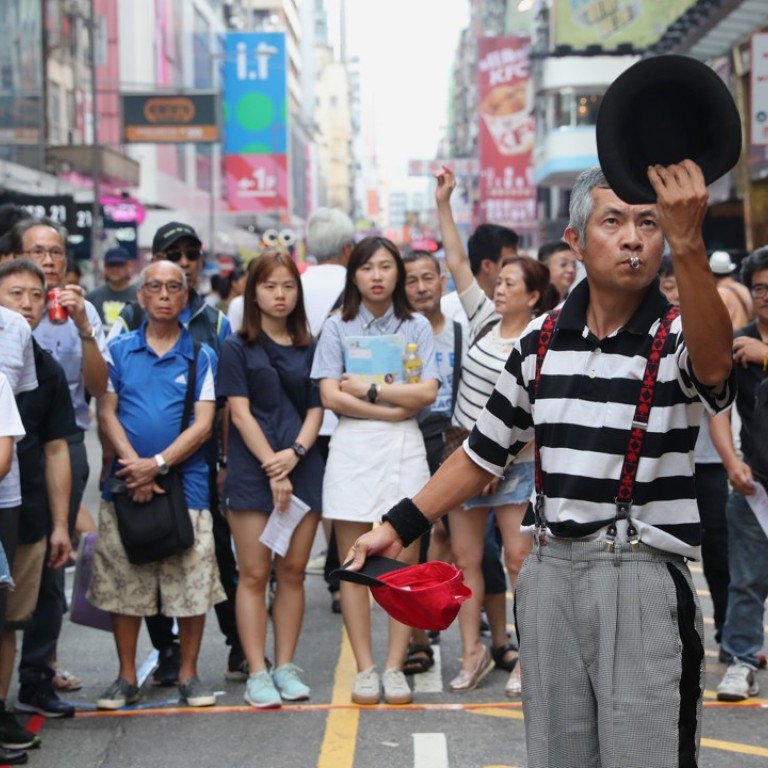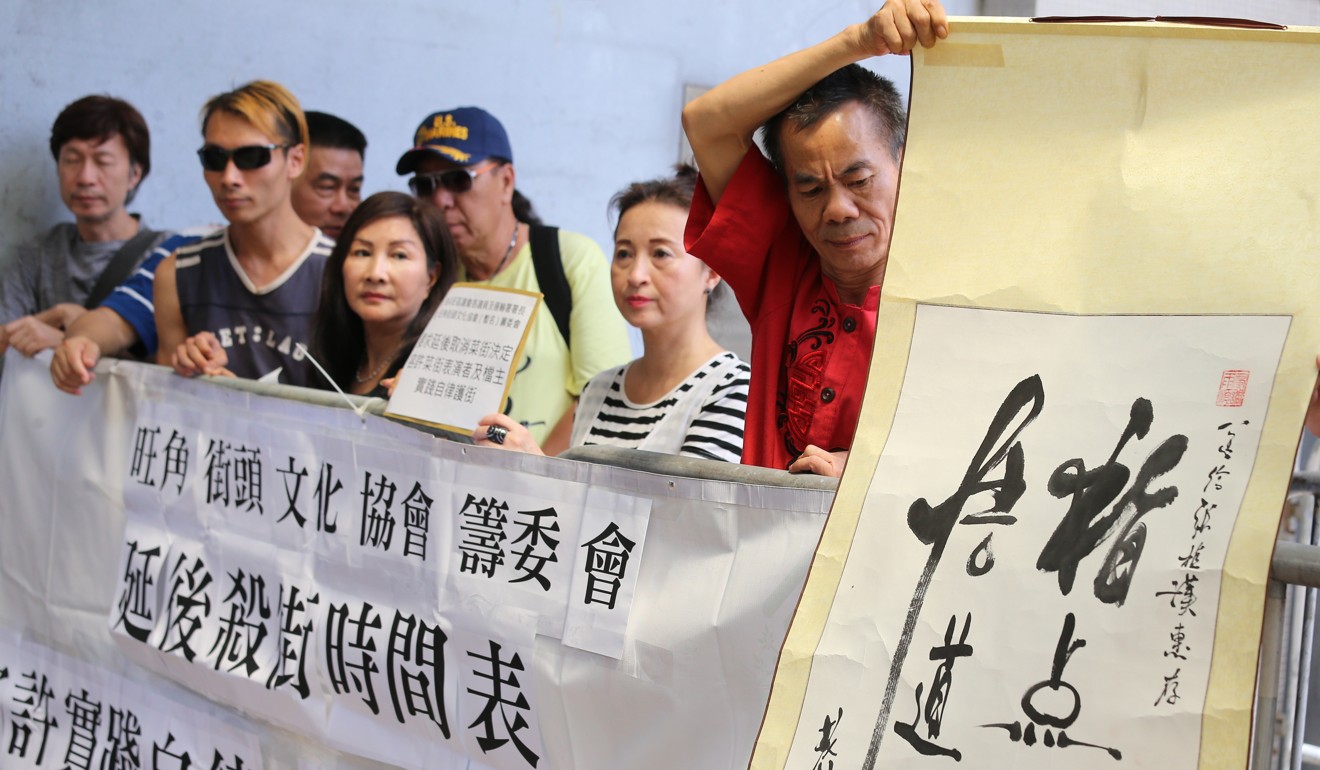
Curtain to fall on Hong Kong’s street performers as council ‘liberates’ popular pedestrianised zone in Mong Kok
Eleventh hour plea from entertainers falls flat as councillors endorse plan to end live entertainment on Sai Yeung Choi Street South at end of month
An eleventh hour promise from Hong Kong street performers on Thursday to change their disruptive and noisy ways was not enough to stop a popular pedestrianised zone in the city being scrapped.
The entertainers launched a last ditch bid to save the area on Sai Yeung Choi Street South, in Mong Kok, and said they would reduce noise levels and perform in smaller groups in an effort to keep the live entertainment area.

At the meeting on Thursday afternoon many councillors called the move “long overdue”, while one, Chan Siu-tong described the decision as the “liberation” of Mong Kok.
On Wednesday, the government said the pedestrian area would be scrapped completely after years of complaints by local residents about raucous entertainment on weekends in one of the city’s busiest shopping districts.
At the moment, the zone, which attracts thousands of tourists a day, is designated as car-free from 4pm to 10pm on Saturdays, and from 12pm to 10pm on Sundays and public holidays.
Councillor James To Kun-sun, said the performers’ apology had come too late.
“It’s been a long torture for the residents there,” To said. “They won’t want to tolerate it [the noise levels] any longer.”
Why Mong Kok pedestrian area should be closed to noisy performers
Ng Chi-fai, a spokesman for a group of 10 street performers calling themselves the Mong Kok Street Culture Society, expressed disappointment with the decision.
“They have not heeded our contribution to the local culture,” Ng said, adding the performers would honour their promise to be quieter when performing and would not stir up trouble.
Fanny Ngau, who has been singing in the area for two years, said she did not think her performances were too noisy, or drove people away.
“It’s absurd to say that we have affected the business of the shops there,” she said. “We attract many people to the area and actually help boost their business.”

Before the meeting Ng had begged for Mong Kok’s street performers to be given another chance.
“Scrapping it [live entertainment] is too radical a move and is not in anyone’s interest,” Ng said.
The group apologised for causing a nuisance in the past, but maintained getting rid of the zone would “kill” Mong Kok culture, and asked for the closing date to be postponed so they could show how their “self-restraint” measures – such as turning down the volume of their speakers, and performing in smaller groups to avoid blocking pedestrians – would work.
Can Hong Kong’s street performers get some love … and more Mong Kok busking space?
“Street performance has become a culture of Mong Kok. The place is also popular with tourists,” Ng said. “Without the venue, the artists will be forced to move to other places and it will only make it more unmanageable.”
He said the entertainers were sorry for the problems the noise had caused.
“We offer our apology to the residents for the inconvenience caused in the past,” he said.
Ng said the performers would start trying out their self imposed “nuisance minimisation” measures on Saturday.
“We hope the government can allow us some time to see how our measures work,” he said. “If local residents find it acceptable, we hope the government can rethink their plan.”

The hours during which the area was pedestrianised were longer when the scheme began in 2000, but were shortened several times between 2010 and 2014, on the back of complaints from residents and shop operators.
The zone has been a popular venue for buskers and other street entertainers as well as tourists. There are also stalls for fortune telling, drawing pictures, and photography. Occasionally, political parties and pressure groups also make use of the area to organise public forums.
The group spearheading the appeal claimed to represent 20, or about half, of the buskers and street entertainment groups staging regular performances in the zone.
“The news just came too suddenly,” said Gaga Chung, a singer who has been performing in the area for three years.
“They [the council] voted in May. We need time to find another place to perform and tell our fans. At least, they should give us more time, say, after September.”
Hong Kong’s decision to shut out Mong Kok street performers shows government-business relations are a mess
Receiving a petition from the group before Thursday’s meeting, district council chairman Chris Ip declined to commit to supporting the group’s plea, although he promised to help raise their points at the meeting.
“The problem has lingered for many years and we have to appreciate the residents’ difficulties,” Ip said.
Separately, localist politician Lau Siu-lai led about 10 activists to petition district councillors before the meeting. They wanted the councillors to press the government to speed up the revitalisation of the old Mong Kok market.

